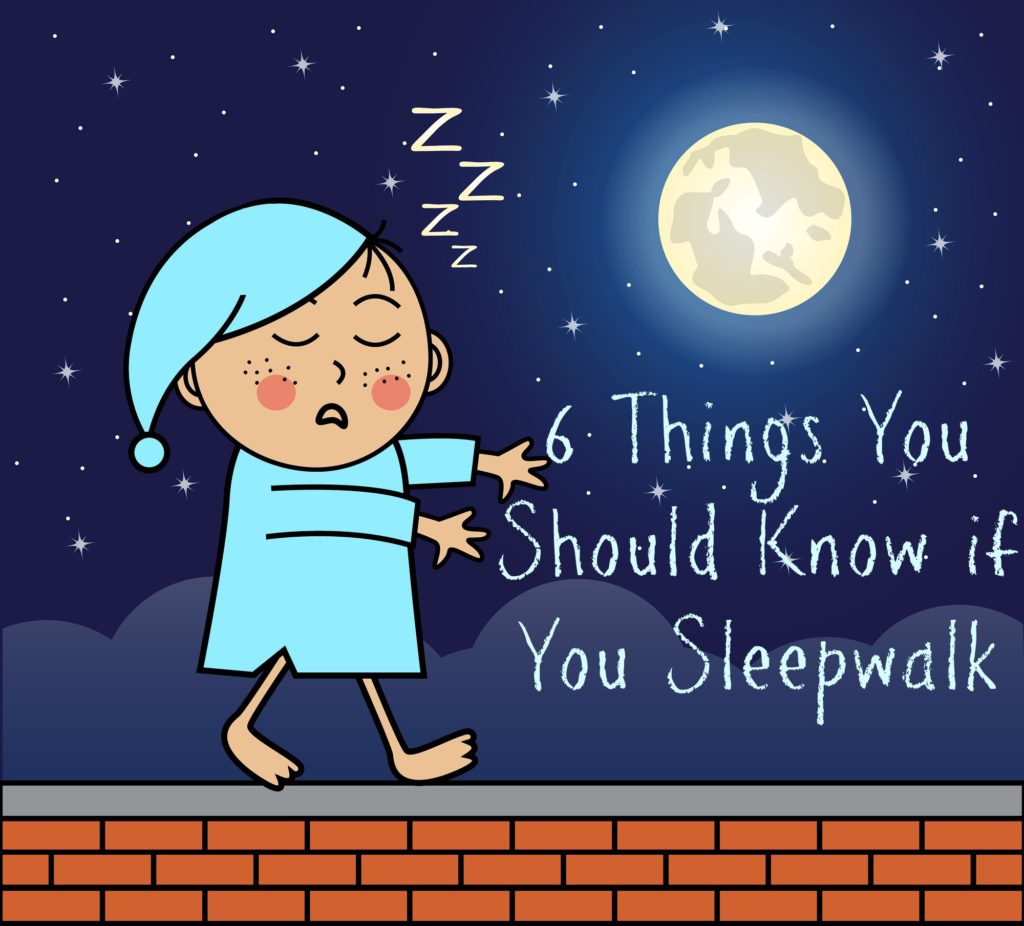6 Things You Should Know if You Sleepwalk
Sleep is a natural restorative process, and while you slumber your body and mind are busy regenerating and rejuvenating. However, there are many things your body may do during sleep that can impact the quality and length of your rest each night, including sleepwalking.
If you have experienced bouts of sleepwalking, or have been told by friends or loved ones that you roam the house in your sleep, then according to the National Sleep Foundation, here are six important things about sleepwalking that you need to know:
Sleepwalking is also known as somnambulism.
Sleepwalking is a sleep behavior disorder that begins during sleep, and causes you to walk or complete other more complex activities without waking up. Those who sleepwalk are difficult to wake up and usually have no memory of their sleepwalking activities once they do wake up.
Sleepwalking is more likely to occur if you are sleep deprived.
If you have been experiencing sleep deprivation, then it becomes more likely you will sleepwalk as well. For this reason, sleepwalking usually coexists with other sleeping issues or disorders. Sleepwalking also tends to occur more in children, but does also commonly impact adults as well.
It is estimated that somewhere between one and fifteen percent of adults sleepwalk.
According to a study in Live Science, 3.6 percent of adults in the US reported that they had experienced at least one sleepwalking episode at least once per year. This means that there are approximately eight million sleepwalkers in America.
There are a variety of symptoms that can signal sleepwalking.
Sleepwalking typically occurs during deep sleep, and can come along with these other symptoms as well:
- Sleep-talking
- Inability to remember sleepwalking episodes upon awaking
- Difficulty waking up
- Behaviors such as urinating in closets or other rooms of the house
- Screaming
- Violence
There are many common triggers for sleepwalking.
While sleepwalking can be caused by a multitude of reasons, the most common triggers for sleepwalking episodes include:
- Sleep deprivation
- Sedatives
- Medications
- Alcohol
Improving your sleep hygiene habits can help reduce bouts of sleepwalking
While there is no cure for sleepwalking, you can manage your symptoms and episodes with consistent, proper sleep hygiene habits. The best way to practice good sleep hygiene it to create sleep rituals that you do every night at bedtime. You should also try to go to bed and wake up at the same time each day, and aim to get seven to nine hours of good, quality sleep each night.
If you are prone to sleepwalking, then it is also a good idea to make sure that your home is free of sharp edges and free of clutter that could injure you during a sleepwalking episode.

